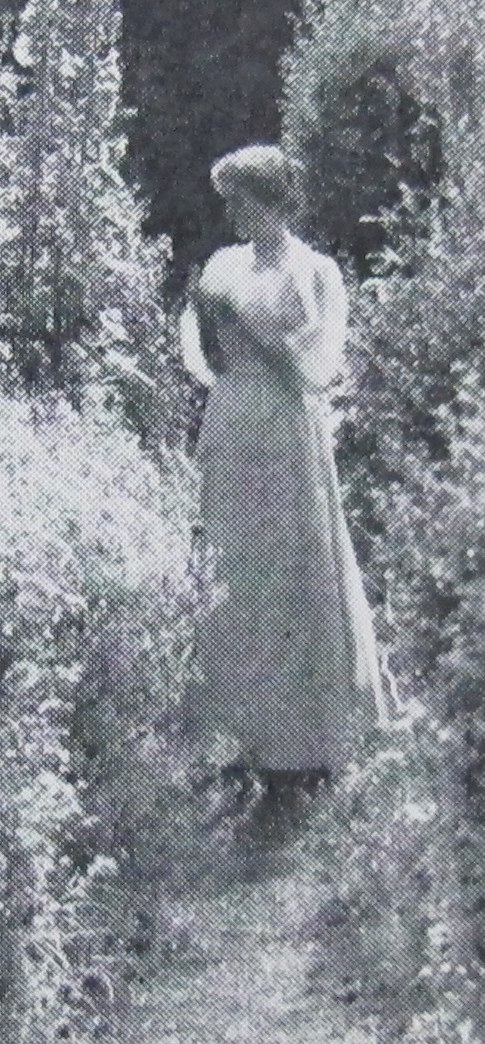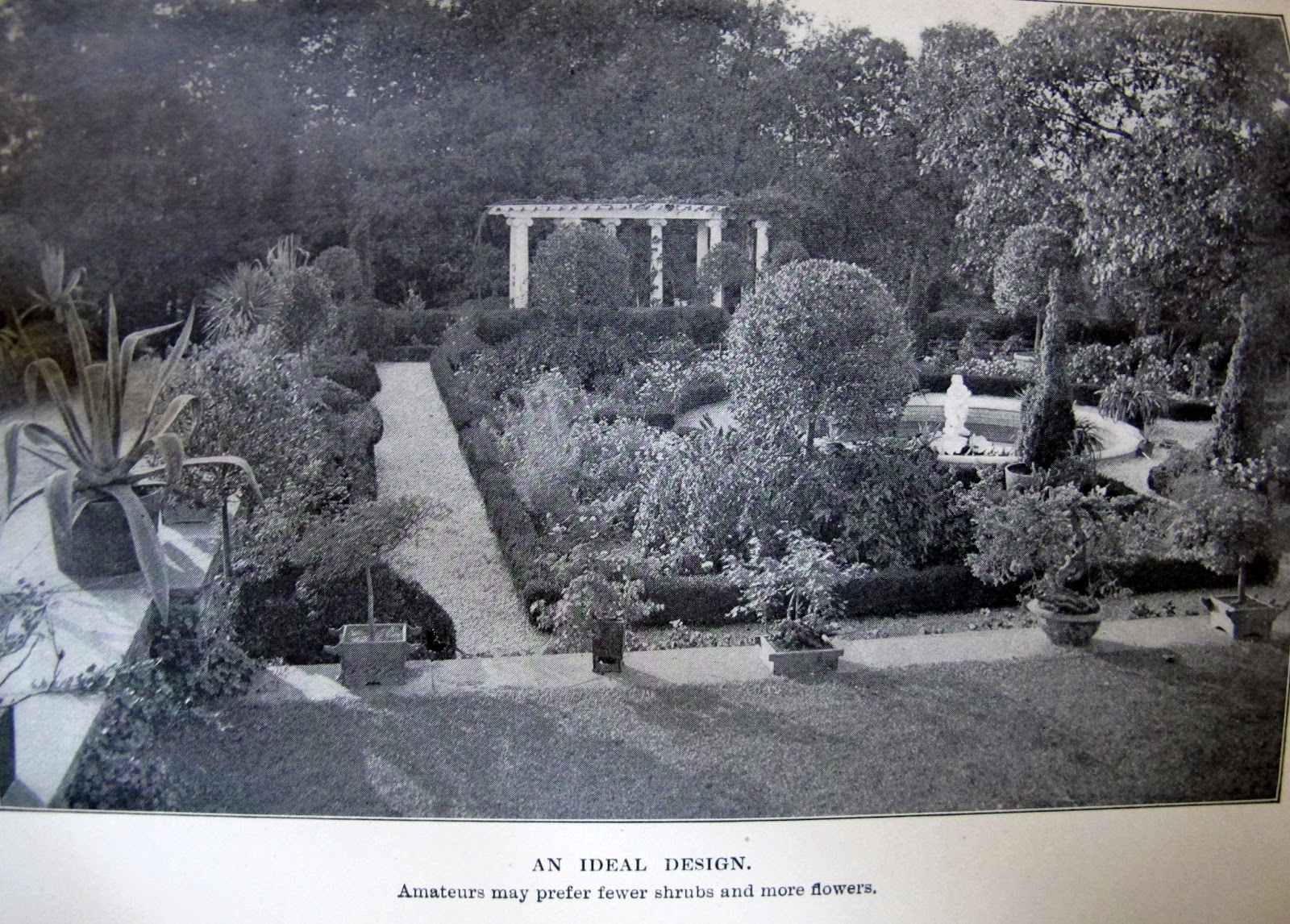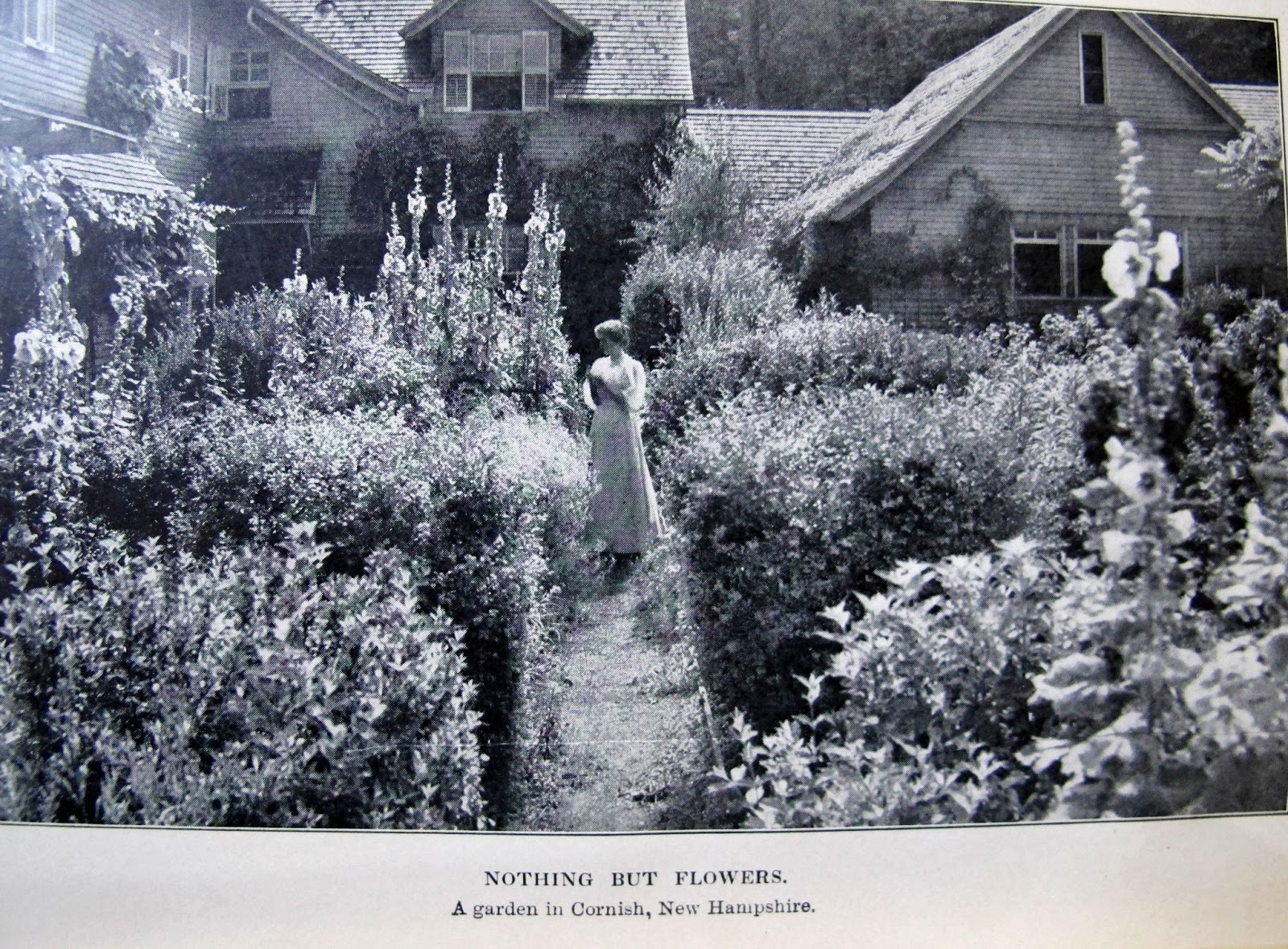 Dear Louise Shelton,
Dear Louise Shelton,
Who are you? I know that you wrote a book in 1906 called The Seasons in a Flower Garden: A Handbook of Information and Instructions for the Amateur.
I know that you likely gardened and lived in New Hampshire.
I know that you once had a little spaniel named Idol, who for twelve years was your shadow in your garden, because you dedicated your book to him.
Perhaps you are the lady in white who stands in the midst of this large flower garden?
I suspect you had good intentions in writing your book. Who would write a book about gardening with other than good intentions?
I moved along pretty well through your book admiring the photos, including this one of “an ideal garden”.

I kept in mind, of course, that when you wrote your book, this may indeed have be an ideal garden. Should I ever decide to uproot my own garden and turn it into a Victorian style garden, your book will be one of the first books I’ll consult.
If I may offer a word of advice for your book, perhaps you should consider removing Chapter XXV title “Don’ts” from future editions? To put it bluntly, this list of 46 items, all starting with the word “don’t”, could cause even the most experienced gardener to wither in the garden and leave her standing there, rooted in place, wondering what she could do that wouldn’t violate one of these statement. They just seem so stifling, like a hot, humid summer day.
I know you meant well with your chapter of Don’ts and might argue that each is a useful piece of information. I suspect that many of these statements could be incorporated elsewhere in the book, where the subject of each is treated a bit more fully. Or perhaps you could turn each statement into a “Do” instead of a “Don’t”.
I fear that an inexperienced gardener could misconstrue your intent and try to follow each one of your statements exactly. The result would be a Garden of Don’ts, which is likely to turn out poorly and might even turn a budding gardener away from gardening. I know you would not want that, Louise.
I have no other complaints about your book, and find it to have been an enchanting rabbit hole. As I wrote in the beginning of this letter, I have studied this picture of a flower garden in the front of the book and wondered if that is you in the center and if this is your own garden.

If it is you and your garden, I congratulate you on your success. It appears to be a lovely garden, hardly hampered by rules of “don’t”.
Hortifully,
Carol
P.S. Happy Birthday, Violet Fane.


Thanks for that wonderful post. I love perusing historic gardening books and researching their often obscure writer's stories. Those chapters of "don'ts" have caught my attention in a few of them, though I find them quite entertaining. They seem to be reflective of a time when people still firmly believed that there was one correct way to garden and one acceptable form of garden to work towards.
Anyone who likes dogs can't be bad, but I do ponder over the "ideal" garden, as it very much looks like a west coast garden, especially with its bonsi display, and I can't imagine its twin in New Hampsihire. I like gardens of all types, but an ideal garden must necessarily reflect its region, don't you think? Some gardeners like to "master" their plants (a typical opinion about French gardeners) while others aim to emulate nature, but I guess most of us fall somewhere in the middle of these extremes. I believe perhaps you've discovered something elemental in Louise's list of don'ts…she likes complete control!
Your comments about "Don'ts" reminds me of my favorite Shel Silverstein poem – "Listen to the Mustn'ts", although he ends up turning it around. Thanks for another fun post.